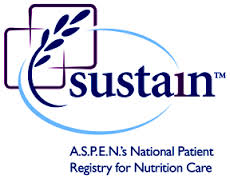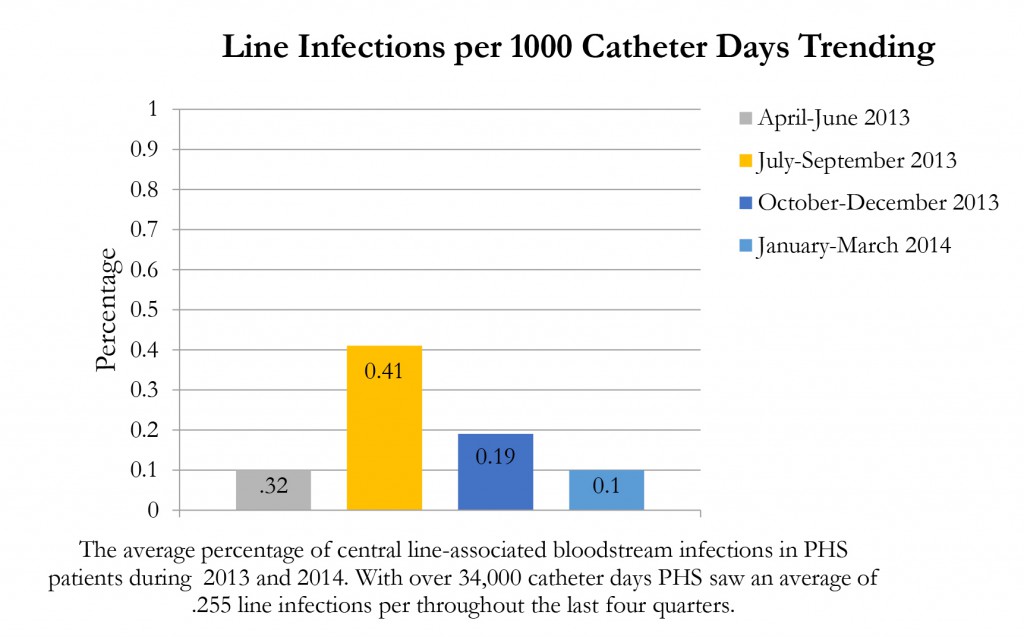Improving Outcomes through Sustain
 HPN Awareness Week is August 3-9 this year, which means our team of dietitians, infusion nurses & pharmacists, home care nurses, and others are on day three of celebrating this therapy that provides opportunities for so many. To kick our celebration off, PHS Clinical Dietitian Sarah Lofboom explains how parenteral nutrition works in the home and what our involvement with Sustain means for our patients. Learn more below, and check back at the end of this week to hear about a few kiddos who receive HPN from PHS. For now, get out and spread the awareness!
HPN Awareness Week is August 3-9 this year, which means our team of dietitians, infusion nurses & pharmacists, home care nurses, and others are on day three of celebrating this therapy that provides opportunities for so many. To kick our celebration off, PHS Clinical Dietitian Sarah Lofboom explains how parenteral nutrition works in the home and what our involvement with Sustain means for our patients. Learn more below, and check back at the end of this week to hear about a few kiddos who receive HPN from PHS. For now, get out and spread the awareness!
Home Parenteral Nutrition
Parenteral nutrition (PN), or intravenous (IV) nutrition, is a therapy that may be necessary for a person who is unable to digest and absorb nutrients from the gastrointestinal tract. A person may require PN for a short period of time, or for a long duration. At one time, children receiving PN were often required to stay in the hospital to receive therapy. PHS assists in bringing children home on PN through teaching and close monitoring from the Nutrition Support Team (NST), which is made up of infusion nurses, dietitians and pharmacists, and meets once per week with physician groups to communicate regarding patients on Home Parenteral Nutrition.
Improving Care with Sustain
 The American Society of Parenteral and Enteral Nutrition (ASPEN) is a national society dedicated to improving patient care by advancing the science and practice of clinical nutrition and metabolism. ASPEN created the Sustain National Patient Registry for Nutrition Care in 2012. The goal of this registry is to fill a gap in the research, and to conduct research studies to increase knowledge about Home Parenteral Nutrition (HPN) and to improve outcomes for patients on HPN. Pediatric Home Service is one of the 34 sites participating nationally, and has been committed to tracking outcomes for pediatric patients in the Sustain Registry since 2012.
The American Society of Parenteral and Enteral Nutrition (ASPEN) is a national society dedicated to improving patient care by advancing the science and practice of clinical nutrition and metabolism. ASPEN created the Sustain National Patient Registry for Nutrition Care in 2012. The goal of this registry is to fill a gap in the research, and to conduct research studies to increase knowledge about Home Parenteral Nutrition (HPN) and to improve outcomes for patients on HPN. Pediatric Home Service is one of the 34 sites participating nationally, and has been committed to tracking outcomes for pediatric patients in the Sustain Registry since 2012.
Why Participate in Sustain?
 Participating in Sustain helps PHS fulfill our mission to take care of the child. PHS is committed to reducing the rate of central line infections (see our CLABSI rates to the right), hospital readmissions, and poor outcomes. Limited data currently exists on outcomes for HPN; PHS contributes to the data collection efforts to improve the care of people on home parenteral nutrition. Comparing our outcomes to the national benchmark not only tells us how we are doing, but where we can improve.
Participating in Sustain helps PHS fulfill our mission to take care of the child. PHS is committed to reducing the rate of central line infections (see our CLABSI rates to the right), hospital readmissions, and poor outcomes. Limited data currently exists on outcomes for HPN; PHS contributes to the data collection efforts to improve the care of people on home parenteral nutrition. Comparing our outcomes to the national benchmark not only tells us how we are doing, but where we can improve.


